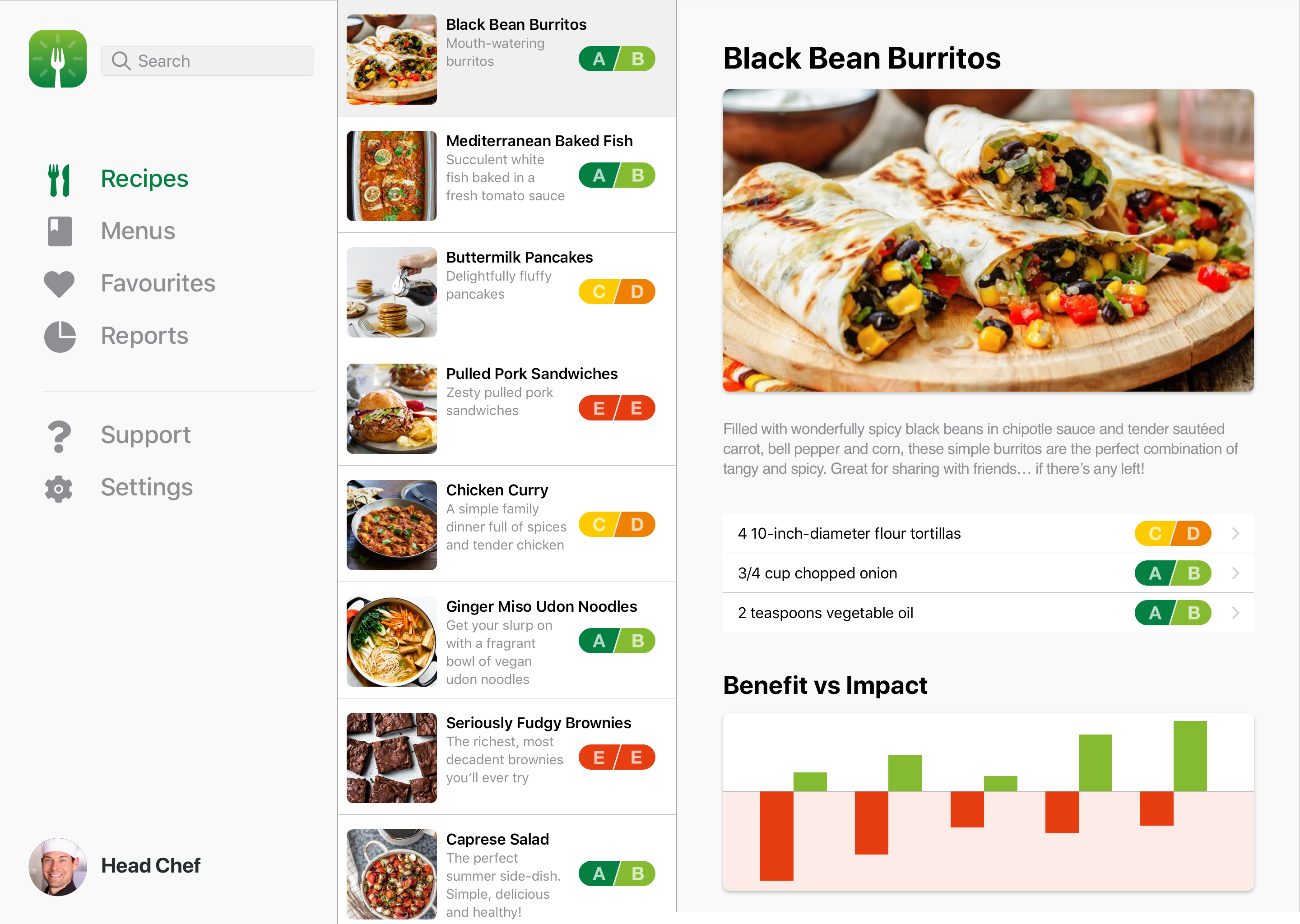Forkful

Forkful is the engine behind thoughtful food, helping businesses and discover, build and maintain sustainable food systems. Powered by machine learning and empirical
evidence, Forkful works at the composition level to assess nutritional benefit and environmental impact, inspiring healthy, low-impact eating that is as good for us as
it is for the planet.
Using our Food Systems Manager, businesses can track their impact using carbon accounting, and use multi-level cost-benefit analysis to curate menus and satisfy their
triple-bottom line; people, profit and the planet. Businesses get more from less, and reduce their ecological footprint. Forkful is simple, accurate, and unbiased —
making it easy for foodservice providers to navigate the food landscape in an actionable, accessible and affordable way.
Conserve
Get more from less, and reduce your ecological footprint with our evidence-based impact scores.
Nourish
Let’s make healthy food delicious again. Reduce diet-related health risks while creating guilt-free dishes that delight.
Innovate
With a handful of nifty algorithms and a dash of machine learning, shape the future of food while saving time and money.
Amplify
Show the world that you care. Publish scores on menus and packaging and share progress to inspire others.
Compensate
Offset unavoidable emissions using our smart-offsetting engine, putting carbon neutrality on autopilot.
Iterate
Define organisational goals, measuring progress and sharing the journey with customers, employees and stakeholders.